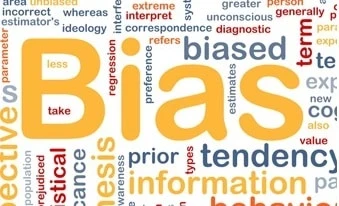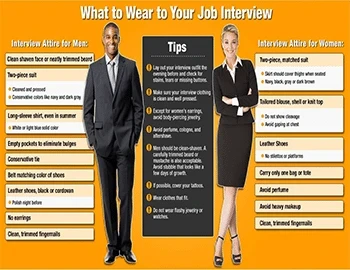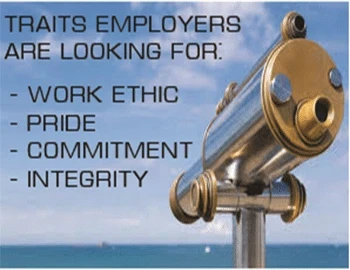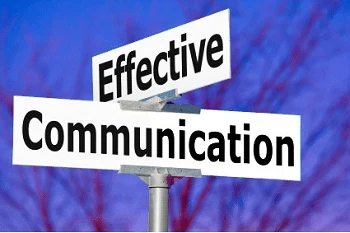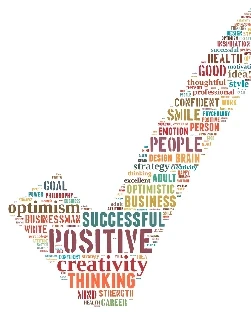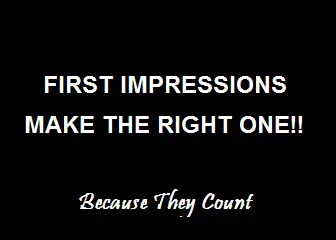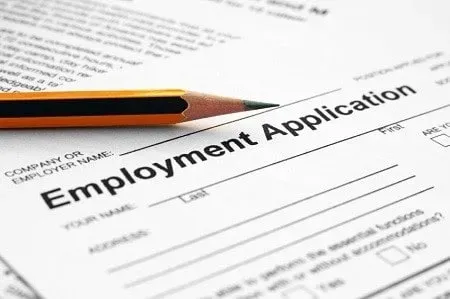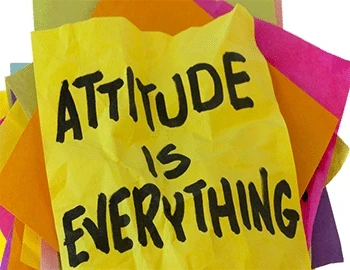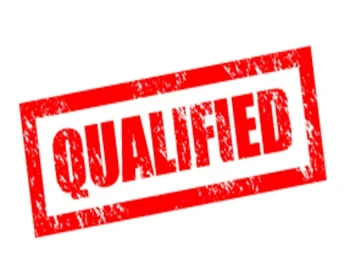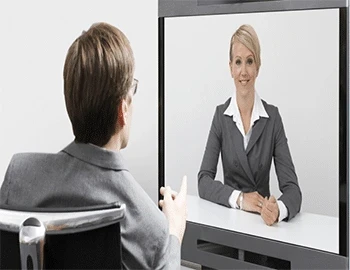Michael DeSafey | Executive Recruiter and HR Professional
Transitioning Military Skills to a Civilian Construction Career
For veterans transitioning from military service to civilian life, finding meaningful employment can be a significant challenge. However, the construction industry offers a wealth of opportunities for veterans to leverage their unique skills, experiences, and values in a rewarding civilian career. Lets explore the diverse range of construction careers available to veterans, the transferable skills they bring to the table, and the resources and support available to facilitate transitioning military skills to the civilian sector.
The Value of Veterans Transitioning Military Skills to the Construction Industry:
Veterans possess a wealth of skills, experiences, and qualities that make them highly valuable assets in the construction industry. Some of the key attributes that veterans bring to construction careers include:
-
Leadership: Veterans have undergone extensive training in leadership, teamwork, and decision-making, making them effective leaders and mentors in construction projects and teams.
-
Discipline: Military service instills a strong sense of discipline, work ethic, and attention to detail in veterans, traits that are highly valued in the construction industry where safety, quality, and efficiency are paramount.
-
Problem-Solving: Veterans are adept problem-solvers, accustomed to operating in high-pressure environments and adapting to changing circumstances, making them well-suited for the dynamic and fast-paced nature of construction work.
-
Technical Skills: Many military occupations involve technical training and experience in areas such as engineering, logistics, and equipment operation, providing veterans with valuable technical skills that are directly applicable to construction careers.
Construction Careers for Veterans:
The construction industry offers a wide range of career opportunities for veterans across various fields and specialties. Some of the key construction careers that veterans may consider include:
-
Construction Management: Veterans with leadership experience and project management skills may pursue careers in construction management, overseeing and coordinating construction projects from inception to completion.
-
Skilled Trades: Veterans with technical skills and experience may pursue careers in skilled trades such as carpentry, electrical work, plumbing, HVAC (heating, ventilation, and air conditioning), and welding, where their hands-on expertise is highly valued.
-
Engineering: Veterans with engineering backgrounds may pursue careers in civil engineering, structural engineering, or mechanical engineering, applying their technical knowledge and problem-solving skills to design and oversee construction projects.
-
Safety and Compliance: Veterans with a background in safety and compliance may pursue careers as safety officers, inspectors, or compliance specialists, ensuring that construction projects comply with regulatory requirements and safety standards.
Transitioning Military Skills to Civilian Construction Careers:
Transitioning from military service to civilian construction careers requires careful planning, preparation, and support. Some strategies for veterans to transition their military skills to civilian construction careers include:
-
Networking: Building connections and networking within the construction industry can open doors to job opportunities, mentorship, and support networks for veterans transitioning to civilian careers.
-
Skills Translation: Identifying and translating military skills and experiences into civilian terms and qualifications can help veterans showcase their strengths and capabilities to potential employers in the construction industry.
-
Education and Training: Pursuing further education, training, or certification in construction-related fields can help veterans acquire the skills and qualifications needed to succeed in civilian construction careers and enhance their competitiveness in the job market.
-
Veterans’ Resources: There are numerous resources and support programs available to veterans transitioning to civilian careers, including job placement services, resume assistance, and educational benefits, provided by organizations such as the Department of Veterans Affairs (VA), veteran service organizations, and community-based nonprofits.
Success Stories: Veterans in the Construction Industry:
Many veterans have found success and fulfillment in civilian construction careers, leveraging their military skills and experiences to excel in the industry. By way of example, we could include anecdotes or interviews with veterans who have successfully transitioned to construction careers, highlighting their journeys, challenges, and achievements in the civilian sector.
For veterans transitioning from military service to civilian life, the construction industry offers a pathway to meaningful and rewarding careers. With their leadership, discipline, problem-solving abilities, and technical skills, veterans are well-equipped to thrive in construction careers and contribute to the continued growth and success of the industry. By leveraging their unique strengths, accessing resources and support, and embracing opportunities for education and training, veterans can make a successful transition to civilian construction careers and embark on a new chapter of service and fulfillment in the construction industry.
Webuild Staffing Agency is a leading executive search and staffing agency dedicated to the construction, engineering and environmental industries. To learn more please visit: www.webuildstaffing.com
Innovations in Pre-Employment Screening in the Construction Industry
Pre-employment screening is a crucial step in the hiring process for construction companies, ensuring that they select qualified, reliable, and safety-conscious workers for their projects. Traditionally, pre-employment screening has involved background checks, drug testing, and verification of qualifications. However, with advancements in technology and changing industry needs, innovative approaches to pre-employment screening are emerging, employers need to stay abreast of the latest innovations in pre-employment screening for construction workers and how these technologies and methods are revolutionizing the hiring process and improving workforce quality and safety.
The Importance of Pre-Employment Screening in Construction:
In the construction industry, where safety is paramount and the quality of work directly impacts project outcomes, pre-employment screening plays a vital role in mitigating risks and ensuring workforce competency. Effective pre-employment screening helps construction companies:
- Ensure Safety: Screening for drug use, criminal history, and safety violations helps identify candidates who may pose a risk to workplace safety, reducing the likelihood of accidents, injuries, and liability claims.
- Verify Qualifications: Verifying the qualifications, certifications, and licenses of candidates ensures that they possess the skills and credentials needed to perform their job duties safely and effectively.
- Protect Company Reputation: Hiring workers with a history of misconduct or incompetence can damage a construction company’s reputation and credibility, leading to lost contracts, legal issues, and financial losses.
- Improve Workforce Quality: Pre-employment screening helps construction companies attract and retain high-quality talent, leading to improved project outcomes, client satisfaction, and profitability.
Innovations in Pre-Employment Screening for Construction Workers:
Biometric Identification: Biometric identification technologies, such as fingerprint scanning, facial recognition, and iris scanning, are revolutionizing the way construction companies verify the identity of job applicants. Biometric identification systems provide a secure, efficient, and accurate method of verifying the identity of candidates, reducing the risk of identity theft, fraud, and impersonation.
Behavioral Assessments: Behavioral assessments use psychometric testing and personality assessments to evaluate the behavioral traits, attitudes, and work styles of job applicants. These assessments help construction companies identify candidates who possess the right temperament, communication skills, and problem-solving abilities to succeed in the construction industry. Behavioral assessments can also uncover red flags, such as impulsivity, aggression, or dishonesty, that may indicate a poor fit for the job.
Virtual Reality Simulations: Virtual reality (VR) simulations allow construction companies to assess the technical skills, spatial awareness, and problem-solving abilities of job applicants in a simulated work environment. VR simulations provide candidates with hands-on experience of performing common construction tasks, such as operating heavy machinery, erecting scaffolding, or reading blueprints, allowing recruiters to evaluate their proficiency and readiness for the job.
Predictive Analytics: Predictive analytics uses data analysis and machine learning algorithms to predict the future performance, behavior, and retention of job applicants based on their past experiences, qualifications, and attributes. By analyzing large datasets of historical hiring data, construction companies can identify patterns, trends, and correlations that indicate which candidates are most likely to succeed in specific roles. Predictive analytics can also help companies identify areas for improvement in their recruitment processes and make data-driven decisions to optimize workforce planning and management.
Blockchain Verification: Blockchain technology offers a secure and tamper-proof method of verifying the qualifications, certifications, and licenses of job applicants. By storing credentialing information on a decentralized ledger, construction companies can ensure the authenticity and integrity of candidate credentials, reducing the risk of fraud, misrepresentation, and credentialing errors. Blockchain verification also streamlines the verification process, reducing administrative burden and accelerating time-to-hire.
Remote Proctoring: Remote proctoring technologies allow construction companies to administer pre-employment assessments and tests to job applicants remotely, eliminating the need for candidates to travel to testing centers or offices. Remote proctoring solutions use webcams, microphones, and screen monitoring software to ensure test integrity and prevent cheating, allowing companies to assess candidates’ skills and competencies efficiently and cost-effectively.
Social Media Screening: Social media screening involves monitoring and analyzing job applicants’ social media profiles to assess their suitability, professionalism, and cultural fit for a job role. While controversial, social media screening can provide construction companies with valuable insights into candidates’ behavior, attitudes, and character traits that may not be evident from traditional application materials. However, companies must be mindful of legal and ethical considerations and ensure that social media screening is conducted in a fair, transparent, and non-discriminatory manner.
Best Practices for Implementing Innovative Pre-Employment Screening:
- Define Screening Criteria: Clearly define the screening criteria and requirements for each job role based on the specific skills, qualifications, and attributes needed for success.
- Select Appropriate Technologies: Choose pre-employment screening technologies and methods that align with your company’s needs, budget, and objectives, taking into account factors such as accuracy, reliability, scalability, and ease of implementation.
- Ensure Compliance: Ensure that pre-employment screening processes comply with relevant laws, regulations, and industry standards, including data privacy, anti-discrimination, and fair hiring practices.
- Provide Training and Support: Provide training and support to recruiters, hiring managers, and candidates to ensure they understand the purpose, process, and implications of pre-employment screening and how to navigate the screening process effectively.
- Maintain Transparency: Maintain transparency and open communication with candidates throughout the screening process, providing clear explanations of the screening criteria, procedures, and outcomes.
Webuild Staffing Agency is a leading executive search and staffing agency dedicated to the construction, engineering and environmental industries. To learn more please visit: www.webuildstaffing.com
How Construction Companies Expertly Recruit Their Dream Team
The construction industry and the infrastructure that dedicated construction professionals build, stands as a testament to human ingenuity and capability. Yet, behind every towering skyscraper and intricate infrastructure lies the sweat and toil of skilled workers. But how do construction companies weave together the perfect team?
Understanding Construction Companies, Industry’s Labor Landscape:
Unlike many industries, the construction industry demands a wide range of skills, from architects and engineers to carpenters and electricians. The industry is often characterized by cyclical demand, seasonal fluctuations, and the need to adapt to rapidly evolving technologies and regulations. So building a team of professionals that work seamlessly to construct complex infrastructure takes time.
Employers utilize a wide range of techniques to find talented professionals:
- Define Job Roles and Requirements: The cornerstone of any recruitment strategy lies in defining job roles and qualifications. Whether it’s for a project manager, site supervisor, or skilled laborer, clarity in job descriptions ensures that candidates possess the requisite skills and experience.
- Leverage Online Platforms: In today’s digital age, online platforms like LinkedIn, Monster, CareerBuilder serve as invaluable tools for reaching a broader pool of candidates. From industry-specific job boards to social media platforms like LinkedIn, construction companies harness the power of technology to attract top talent.
- Network and Industry Connections: Networking remains a potent force in the construction industry. Whether it’s attending industry events, participating in trade associations, or fostering relationships with educational institutions, tapping into existing networks can yield promising recruitment leads.
- Employee Referral Programs: The adage “birds of a feather flock together” holds true in recruitment as well. Many construction firms incentivize employees to refer qualified candidates, leveraging the trust and camaraderie within existing teams to identify potential hires.
- Collaboration with Recruitment Agencies: Partnering with specialized recruitment agencies can streamline the hiring process by tapping into their expertise and extensive candidate networks. These agencies often possess insights into market trends, salary benchmarks, and candidate availability, offering a competitive edge to construction companies. A leading recruitment agency in the construction industry is Webuild Staffing www.webuildstaffing.com
- Apprenticeship and Training Programs: Recognizing the importance of nurturing talent from within, many construction companies invest in apprenticeship and training programs. By offering hands-on experience and mentorship opportunities, these initiatives not only cultivate a skilled workforce but also foster loyalty and retention.
- Embracing Diversity and Inclusion: In an industry historically dominated by male workers, there’s a growing recognition of the importance of diversity and inclusion. Construction companies actively seek to diversify their workforce, tapping into a broader talent pool while fostering a culture of equality and innovation.
- Showcasing Company Culture and Values: Beyond job roles and qualifications, candidates are increasingly drawn to companies that align with their values and offer a supportive work culture. Construction firms leverage employer branding initiatives to showcase their commitment to safety, sustainability, and employee well-being, thereby attracting like-minded individuals.
- Assessment and Selection Process: From initial screenings to in-depth interviews and skill assessments, the selection process plays a pivotal role in identifying the right candidates. Construction companies employ a mix of behavioral interviews, technical assessments, and on-the-job trials to evaluate candidates’ suitability for the role and the organization.
- Competitive Compensation and Benefits Packages: While passion for the craft often drives individuals to the construction industry, competitive compensation and benefits packages remain crucial in attracting and retaining top talent. Construction companies benchmark their offerings against industry standards, ensuring they remain attractive to prospective hires.
By adopting a strategic and multifaceted approach to recruitment, construction companies can assemble teams of skilled professionals capable of tackling the most complex challenges. From leveraging technology and networking to fostering diversity and investing in employee development, the key lies in understanding the unique needs of the industry and aligning recruitment efforts accordingly.
We build Staffing Agency is a leading executive search and staffing agency dedicated to the construction, engineering and environmental industries. To learn more please visit: https://www.webuildstaffing.com/
Finding the Right Fit: How to Screen an Engineer for Project Success
The success of a project often hinges on assembling the right team of professionals. Whether you’re a project manager, an engineering lead, or part of a hiring committee, the process of screening engineering job candidates is crucial to ensure that they are the perfect fit for the project at hand. Let’s walk you through the steps to effectively screen an engineer for project success on specific projects, helping you make informed decisions that will drive project success.
Define Project Requirements
Before you begin screening candidates, it’s essential to have a clear understanding of the project’s requirements. Work closely with project stakeholders to create a comprehensive list of skills, qualifications, and expertise needed for success. Consider technical skills, project-specific knowledge, and any industry certifications that may be required.
Craft Targeted Job Postings
Based on the project requirements, craft job postings that are specific and detailed. Clearly communicate the skills and qualifications candidates must possess to be considered for the role. Tailor the job postings to attract candidates with the right expertise for the project.
Resume and Application Review
Review candidates’ resumes and applications carefully. Pay close attention to their work experience, educational background, and certifications. Look for candidates who have relevant experience in similar projects or industries. Ensure that their qualifications align with the project’s specific requirements.
Conduct Initial Screening Interviews
After the resume review, conduct initial screening interviews. These can be phone or video interviews to assess candidates’ technical skills, project-specific knowledge, and overall fit for the project. Ask questions that delve into their past experiences and how they can contribute to the project’s success.
Assess Problem-Solving Abilities
Engineering projects often require creative problem-solving. Include technical assessments or problem-solving exercises during the screening process to evaluate candidates’ ability to tackle challenges relevant to the project. This can provide valuable insights into their practical skills.
Evaluate Communication Skills
Effective communication is vital for project success. Assess candidates’ communication skills, both written and verbal. They should be able to explain complex engineering concepts clearly and collaborate effectively with team members and stakeholders.
Check References
Contact candidates’ references to validate their qualifications and past performance. Ask about their experience working on similar projects, their teamwork and communication skills, and their ability to meet project deadlines and objectives.
Consider Cultural Fit
Assess candidates’ cultural fit with the project team and organization. Ensure that they align with the company’s values and work well within the project’s work environment. Cultural fit can significantly impact team dynamics and project outcomes.
Review Portfolios and Past Projects
Candidates should provide portfolios or examples of their past projects. Review these materials to gain a deeper understanding of their work and accomplishments. Look for projects that demonstrate their ability to excel in roles similar to the one they’re being considered for.
Evaluate Soft Skills
In addition to technical skills, evaluate candidates’ soft skills, such as leadership, adaptability, and problem-solving. These skills play a crucial role in project management and team dynamics.
Assess Industry-Specific Knowledge
For projects in specialized industries, such as aerospace or renewable energy, assess candidates’ industry-specific knowledge and experience. They should be well-versed in industry regulations, standards, and best practices.
Collaborate with Cross-Functional Teams
If the project involves multiple disciplines or departments, collaborate with cross-functional teams during the screening process. This ensures that candidates have the necessary skills and expertise to work effectively with diverse team members.
Use Behavioral Interviews
Behavioral interviews focus on candidates’ past behavior and experiences. Ask candidates to provide examples of how they have handled specific situations or challenges in previous projects. This approach can reveal their problem-solving abilities and decision-making skills.
Simulate Project Scenarios
Simulate real project scenarios or challenges and ask candidates how they would approach them. This can provide valuable insights into their problem-solving methods, decision-making processes, and their ability to adapt to project-specific situations.
Continuous Evaluation and Feedback
Throughout the screening process, continuously evaluate candidates and gather feedback from interviewers and team members. Discuss the strengths and weaknesses of each candidate and assess their alignment with the project’s requirements.
In Conclusion: Building the Dream Engineering Team
Screening engineering job candidates for specific projects is a meticulous and multifaceted process. It requires a deep understanding of project requirements, rigorous assessment methods, and a keen eye for qualifications and cultural fit. By following these steps and customizing the screening process to fit your project’s needs, you can assemble the dream engineering team that will drive your project to success. Remember that an effective screening process not only benefits the project but also contributes to the professional growth and development of the engineering candidates you select.
Webuild Staffing Agency is a leading executive search and staffing agency dedicated to the construction, engineering and environmental industries. To learn more please visit: www.webuildstaffing.com








